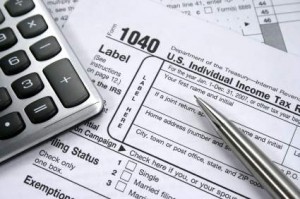 Written by Charleston Bankruptcy Lawyer, Russell A. DeMott
Written by Charleston Bankruptcy Lawyer, Russell A. DeMott
File your taxes! That’s right. Filing your income taxes is the key to discharging tax debt in bankruptcy.
The 3/2/240 rule
There are numerous bankruptcy blog posts out there about discharging taxes in bankruptcy. It boils down to the 3/2/240 rule. You can read about there here in “Using Bankruptcy to Discharge Tax Debt.”
The “2” in the 3/2/240 rule is requirement that you must have filed your tax return two or more years prior to filing your bankruptcy petition. “Filed,” according to several cases addressing this issue, most notably In re Maroney here in the 4th Circuit Court of Appeals, means that the taxpayer must file her return prior to the IRS filing a return for the tax payer. When that happens, it’s called a “Substitute for Return,” and it’s authorized under IRC § 6020(b) (for those of you who like code sections.) Florida tax lawyer Peter Pappas appropriately calls this “the IRS’s secret enforcement weapon.”
“Substitute for Returns” (Or “SFR” for short)
“Substitute for return” is IRS speak for, “you didn’t file your return, so we filed one for you. And to discharge income tax debt in bankruptcy, the Fourth Circuit Court of Appeals said this:
[O]ur sister circuits have uniformly held that in order for a document to be considered a “return,” under either the bankruptcy or the tax laws, it must (1) purport to be a return; (2) be executed under penalty of perjury; (3) contain sufficient data to allow calculation of tax; and (4) represent an honest and reasonable attempt to satisfy the requirements of the tax laws. See, e.g., In re Hindenlang, 164 F.3d 1029, 1033 (6th Cir.1999) (citingBeard v. Commissioner, 82 T.C. 766, 1984 WL 15573 (1984), aff’d, 793 F.2d 139 (6th Cir.1986)); In re Hatton, 220 F.3d 1057, 1060-61 (9th Cir.2000) (citing Hindenlang and Beard).
The Court reasoned that a taxpayer’s return filed only after the IRS filed an SFR “is hardly how honest and reasonable taxpayers attempt to comply with the tax code.” In other words, if the IRS beats you to the punch and filed an SFR before you file your return for the tax year at issue, you cannot satisfy the fourth prong stated above–ever.
All this reinforces the most important thing you need to know about discharging income taxes in bankruptcy: YOU MUST FILE YOUR RETURNS BEFORE THE IRS DOES!





Love how you just put it out there bluntly – “FILE YOUR TAXES”
Taking that first step forward is always the most important, but I’m sure one of the most difficult things for people to do.